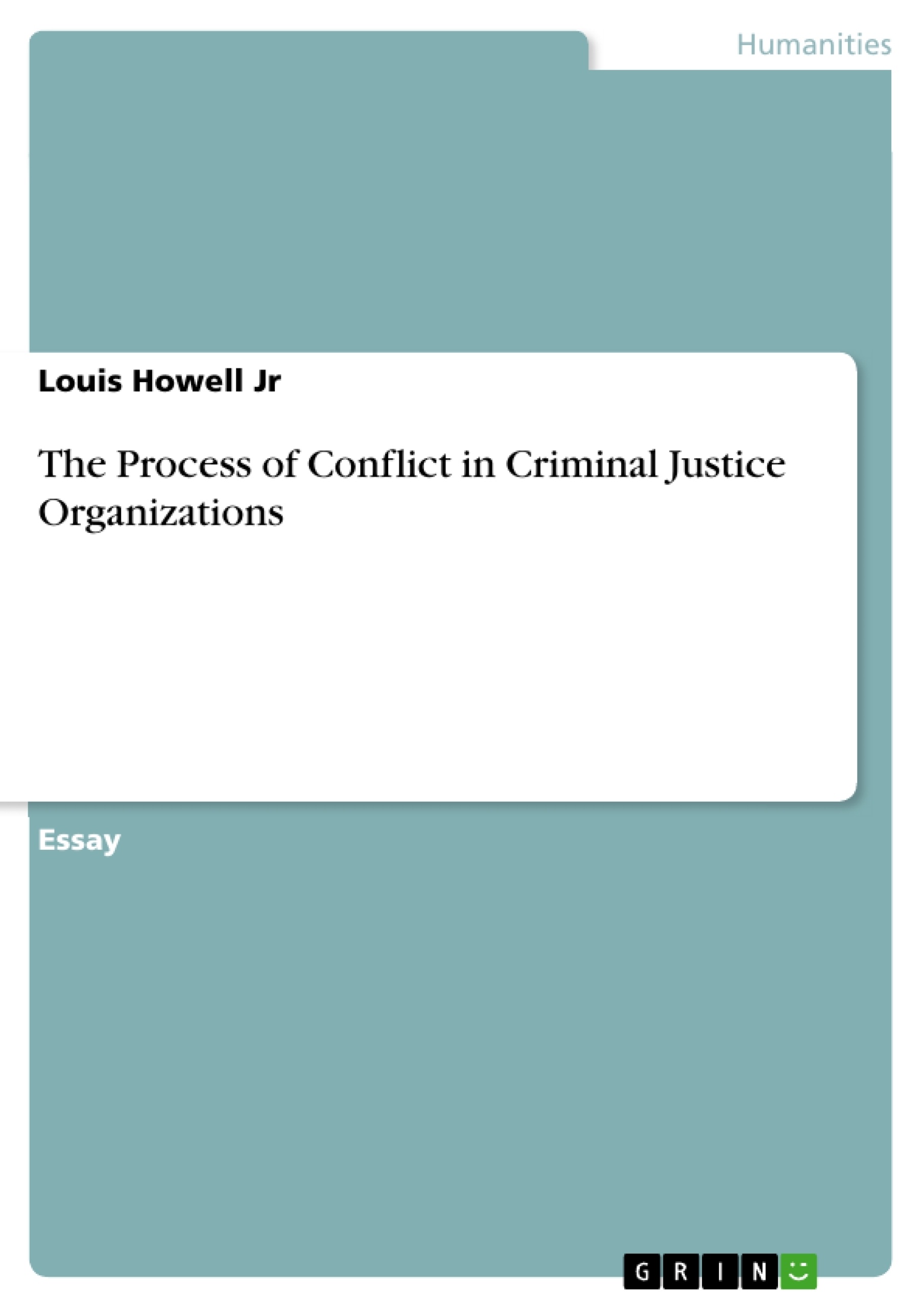Conflict in any organization can arise over breakdowns in communication, values conflicts, poorly defined work policies and demands, personality clashes, adversarial management, wages and benefits, employee distrust of authority, and external factors such as technological change and economic conditions. Whether or not conflict benefits people and organizations depends on the intensity of the conflict and how well the conflict is managed. There are several topics that must be explored when examining conflict in criminal justice organizations, such as, how conflict is defined, the types of conflict behaviors exhibited by people in organizations, conflict management, and the role of conflict in criminal justice organizations. Conflict whether between individuals or groups is inevitable in any organization regardless of its size and function. The consequences of conflict can range from a minor inconvenience to major losses in productivity and revenue. Therefore, it is important to understand the nature of conflict.
Inhaltsverzeichnis (Table of Contents)
- Abstract
- The Process of Conflict
- Types of Conflict in Organizations
- Personal Conflict
- Group Conflict
- Intergroup Conflict
- Intraorganizational Conflict
- Vertical Conflict
- Horizontal Conflict
- Line-Staff Conflict
- Role Conflict
- Interorganizational Conflict
- Conflict Management
- Stages of Conflict
Zielsetzung und Themenschwerpunkte (Objectives and Key Themes)
This text examines the nature and dynamics of conflict within criminal justice organizations. It explores the various types of conflict, including personal, group, intergroup, intraorganizational, and interorganizational conflict, and analyzes the factors that contribute to their emergence. The text also delves into conflict management strategies and the stages of conflict resolution, aiming to provide a comprehensive understanding of this pervasive issue in criminal justice settings.- The nature and types of conflict in criminal justice organizations
- The impact of conflict on organizational performance and effectiveness
- The role of communication and management in conflict resolution
- Strategies for managing conflict in criminal justice environments
- The importance of understanding and addressing the root causes of conflict
Zusammenfassung der Kapitel (Chapter Summaries)
The text begins by defining conflict as a disagreement between individuals or organizations concerning goals, resources, rewards, policies, procedures, and job assignments. Emotional issues, such as anger, distrust, dislike, fear, and resentment, can also contribute to conflict. It highlights the importance of understanding the nature of conflict in criminal justice organizations, considering that it is inevitable and can have significant consequences for productivity and revenue. The text then explores the various types of conflict within organizations, including personal conflict, group conflict, intergroup conflict, intraorganizational conflict (vertical, horizontal, line-staff, and role), and interorganizational conflict. Conflict is categorized as functional or dysfunctional, with moderate intensity conflict being beneficial for performance and low or high intensity conflict being detrimental. The final section of the text examines conflict management strategies, focusing on the stages of conflict resolution (latent conflict, perceived conflict, felt conflict, manifest conflict, and conflict aftermath). It emphasizes the importance of addressing conflict in a timely and effective manner to prevent escalation and maintain organizational harmony.Schlüsselwörter (Keywords)
This text focuses on conflict within criminal justice organizations, exploring topics such as conflict management, communication, organizational structure, and the various types of conflict that arise in these environments. The text emphasizes the importance of understanding the root causes of conflict and developing effective strategies for resolution. Keywords include conflict, criminal justice, organizational behavior, communication, management, leadership, and resolution.- Quote paper
- Boston University Master Criminal Justice Louis Howell Jr (Author), 2012, The Process of Conflict in Criminal Justice Organizations, Munich, GRIN Verlag, https://www.hausarbeiten.de/document/293518


